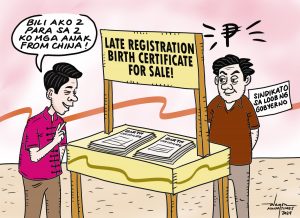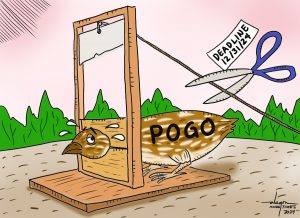By Herman M. Lagon
The 1986 EDSA People Power Revolution is a tribute to the Filipino people’s unwavering spirit and a ray of hope amidst the turbulent currents of history. It was a time when the people’s organic bravery, true unity, and combined will overcame persecution and tyranny to bring democracy back to a country that had suffered for twenty years under Ferdinand Marcos’ autocratic leadership. This movement spread beyond its local setting and came to represent nonviolent opposition to authoritarian governance on a global scale.
As we fast-forward to the present, Ferdinand “Bongbong” Marcos Jr., the son of the dictator overthrown by the EDSA Revolution, finds himself leading the Philippines at a crossroads that uncannily echoes the past. This trend prompts us to consider how politics is cyclical and how important historical memory is in forming our decisions. It challenges us to think critically about how societies may go forward while considering the lessons of their past and poses significant concerns about genuine accountability and true reconciliation.
However, it is crucial to understand that we remain in the same situation we found ourselves four decades ago, with Bongbong Marcos’ election as president, as declared by the now-disqualified Smartmatic. The current administration has obstacles that have unmistakable similarities to the martial law era, including energy and economic crises and political concerns. However, the overall environment is very different from that of the past. The Philippines presently has particular modern difficulties that call for contemporary answers in a globalized society. In the face of international unpredictability, the administration struggles to provide energy security, manage inflation, create jobs, defend territories, eliminate corruption, curb crimes, solve the national debt, and stop the learning crisis.
Discussions concerning the possible ramifications for democracy and human rights in the country are sparked by the BBM administration’s political strategy of upholding and advancing his father’s legacy. Fears of a return to authoritarian forms of government, repression of opposition, and power concentration are similar to those experienced during the martial law era. Nonetheless, it is critical to acknowledge that civil society, government, and power relations have changed. Since the EDSA Revolution, the Filipino people’s consciousness, information availability, and opportunities for engagement in governance have greatly increased.
It is in this note that remembering the lessons learned from the EDSA People Power Revolution is now more crucial than ever. It is a reminder of the importance of being watchful, actively involved in politics, and defending democratic institutions and ideals. The EDSA spirit tells us that people working together can overcome even the most formidable obstacles, showing courage and faithful solidarity. It emphasizes the necessity of ongoing participation, thoughtful decision-making, and the pursuit of the common good to stop historical injustices from happening again. All these can be done not just in the parliament, the streets, or the traditional media, but more so in our small circles at home, schools, board rooms, working stations, cafes, and the web, especially in social media.
We need to be motivated by the legacy of the EDSA Revolution as we negotiate the complexity of the present. We are reminded to live up to the ideals of EDSA every day by standing up for social justice, democracy, and human rights. Let us exercise critical thinking, defend justice and the truth, and actively determine our nation’s destiny. We still can determine our future, and understanding the past is essential to making wise decisions that advance the interests of all.
The EDSA People Power Revolution’s lessons provide us with direction even though the ghosts of the past still reverberate in the present. They serve as a reminder to move forward with more vigilance, be watchful with a more thoughtful perspective, value and defend our liberties, and actively participate in the democratic process with and for others. We must all do our part to help bring these principles to pass as we struggle for a just, compassionate, decent, and democratic society.
Never again! Never forget!
***
Doc H fondly describes himself as a ‘student of and for life’ who, like many others, aspires to a life-giving and why-driven world that is grounded in social justice and the pursuit of happiness. His views herewith do not necessarily reflect those of the institutions he is employed or connected with.
reflect those of the institutions he is employed or connected with.


